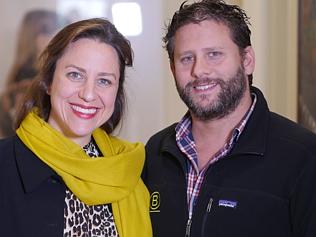7-Eleven not alone in underpaying: Allan Fels
Allan Fels, who at 74 is as busy as ever, says business in Australia puts ‘self-interest ahead of obeying the law’.
Allan Fels’s pugnacious response to 7-Eleven’s decision to shut down the independent arbitration panel he was chairing stirred the government into action on the underpayment of workers. At 74, Fels is as busy as ever, taking on the chair of the proposed Migrant Workers Task Force, as well as a new role on the transport policy board of Uber.
Robert Gottliebsen: What does that whole 7-Eleven situation tell us about ethics in Australian business?
Allan Fels: Well, that they put self-interest ahead of obeying the law; indeed, a considerable disregard for the law. Now, in the case of 7-Eleven, although the franchisees were the ones breaking the law, the model of profit sharing between 7-Eleven was franchisees could only profit if they paid half the minimum wage or less.
Alan Kohler: Was 7-Eleven a completely isolated case?
AF: No. There are heaps of others doing it. It’s obvious.
AK: And is it defined to franchisees or franchised businesses, do you think?
AF: No, I think there’s a lot of underpayment of people. In the 7-Eleven case, it was pretty systematic. The board has said they didn’t know much about it but down there it was happening on a huge scale and I think probably there are a number of other businesses where people are turning a blind eye to the fact that it’s going on at franchisee or other levels.
AK: You’ve just turned 74, you’ve just taken a role with Uber. Do you feel a bit like gamekeeper turned poacher? You’ve been involved in fixing up the taxi industry and now you’ve gone to the nemesis of the taxi industry.
AF: This one I feel quite different. Uber was not on the scene when I did the taxi report, and I feel that maybe unlike joining up with some other boards, this has an immensely exciting future all around the world. This is the way point-to-point transportation will go and it’s expanding the market hugely.
AK: One of your jobs is in the Australian School of Government where you’re teaching Chinese officials about governance. What are their ethics like?
AF: They are certainly very interested in what we do about corruption. My impression of (Chinese) officials is they’re a bit paralysed to do anything because it could be judged to be corrupt.
This is an edited transcript of a video interview. To the see the full series on leaders and their values, go to theaustralian.com.au/performance.




To join the conversation, please log in. Don't have an account? Register
Join the conversation, you are commenting as Logout